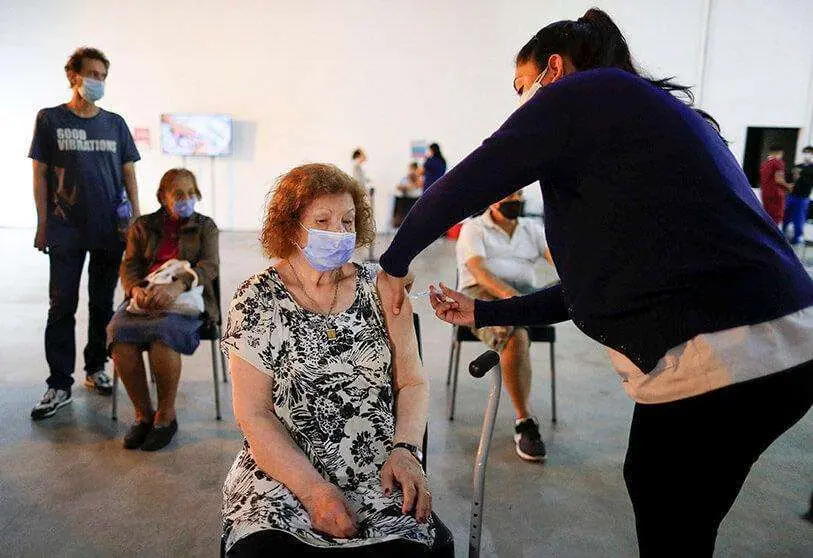Argentina to require vaccination certificate as of 1 January 2022

The government of Alberto Fernández announced the decision to impose the need for a health pass for all people over the age of 13 who attend activities of "greater epidemiological and health risk". The measure will come into effect from 1 January, and will oblige citizens residing in Argentina to identify themselves through their complete COVID-19 vaccination schedule.
The measure, published in the Official State Gazette, aims to encourage vaccination against the coronavirus. The Minister of Health, Carla Vizzoti, pointed out the need for the health pass so that "the activities are safe, that they can be sustained and that those who have not yet completed their schedule get the second dose".
This government initiative establishes that the vaccination must be given at least 14 days in advance, and that the designated personnel can request and verify it whenever they deem appropriate.
The first province to implement the health pass was Tucumán, where vaccination has increased by 140% since the measure was introduced, according to Ministry of Health data. These positive data have laid the foundations for the government, and Carla Vizzotti has announced that she does not rule out the possibility of implementing the health pass throughout the country. For the time being, the measure will come into effect on 21 December in the province of Buenos Aires.

The high levels of infection in recent weeks and the concern generated by the new variant have led to the government's decision, which states that "the measure was taken on the basis of consensus among all jurisdictions and the national government, and is a key tool for sustaining achievements, reducing epidemiological risks and continuing to provide protection against Covid-19 to more and more citizens".
The Omicron variant is making its presence felt around the world, with new waves of cases and hospital admissions. In Latin America, its presence has already been confirmed in five countries, and specialists from the Pan American Health Organisation (PAHO) do not rule out the possibility of more cases appearing in other countries.
Brazil was the first Latin American country to confirm the presence of the new variant in its territory. As a result, concern and alarm has begun to grow, prompting the government to require coronavirus vaccination certificates for those entering the country.
This measure is part of a court order issued by the Supreme Court, contrary to the wishes of President Jair Bolsonaro, which aims to prevent the spread of the new variant. Although the official validation of nine High Court judges is still pending, the National Health Surveillance Agency, Anvisa, began to enforce it on Monday at all international airports.

"The [court's] decision has immediate effect, with no deadline for compliance, and therefore requires the agency to carry out timely assessments, especially in relation to passengers who were already moving or in transit at the time the decision was issued," Anvisa said in its official statement.
As of 14 December, those over 18 years of age entering the country will be required to present their full COVID-19 vaccination certificate.
President Iván Duque has described the measure as an action to "protect" visitors and "preserve" the country's vaccination coverage, which stands at around 73 per cent. In addition, the measure also applies to access to public places, where until now only the document was required, but with at least one dose.

On 26 May, a "mobility pass" came into force, which certifies full vaccination with two doses and grants greater freedom of access to public places, events, shops and restaurants.
The Chilean Ministry of Health has announced that from 1 January 2022 it will be necessary to have a booster dose of the COVID-19 vaccine in order to obtain a Mobility Pass. This new measure will affect all people over 18 years of age, who will see their health certificate invalidated if they do not acquire the booster dose.
The Peruvian government set 15 December as the date to begin requiring vaccination cards, but the measure was finally brought forward to 10 December. This documentation will be required in closed places such as air and land transport.
This measure aims to boost vaccination levels, which so far have immunised 70% of the target population with two doses, according to data from the Ministry of Health.
Latin America Coordinator: José Antonio Sierra.








